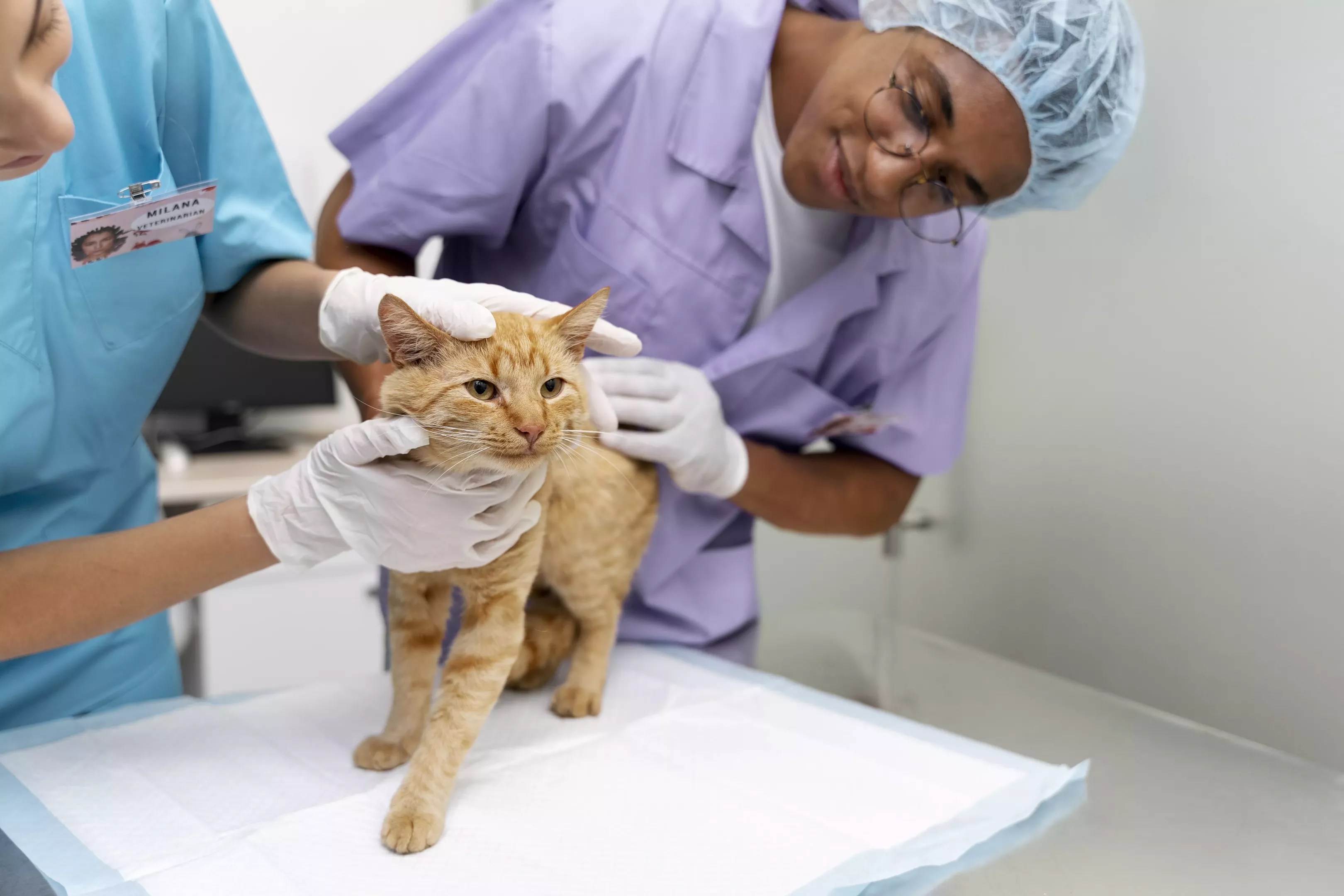
Freepik

Audio By Carbonatix
Colorado is in the midst of a veterinary care shortage. A ballot measure aims to change that – but whether the initiative would hurt or help the state’s animals depends on who you ask.
Around 70 percent of veterinary practices in Colorado turn away clients every week because they cannot keep up with the demand, according to a 2023 survey by Colorado State University’s Animal-Human Policy Center. At the same time, 42 percent of practice owners said they were actively seeking more veterinarians, claiming it took them 10.8 months on average to fill a veterinarian position.
Proposition 129 offers a potential solution: establish a mid-level position between veterinarians and veterinary technicians. The new veterinary professional associate (VPA) role would allow people with a master’s degree in veterinary care to carry out certain procedures under the supervision of a licensed Colorado veterinarian.
“This initiative will revolutionize veterinary care for Colorado pet owners struggling to access and afford it,” says Judy Calhoun, CEO of NOCO Humane, one of the organizations backing the measure. “As the first in the nation, Prop 129 isn’t just a policy change, it’s a lifeline to bring relief to our community.”
Supporters of the measure compare the proposed VPA position to physician assistants in human medicine; they would be able to perform routine surgeries, diagnose medical concerns and order/perform tests and procedures – all tasks that can only be done by veterinarians under current Colorado law.
Advocates say the ballot measure would expand access to veterinary care, taking some of the burden off veterinarians. However, critics argue that the education requirements for VPAs are dangerously insufficient.
“It undermines the standards for veterinary care in Colorado and threatens pet and animal safety,” says Dr. Kelly Walsh, president of the Colorado Veterinary Medical Association. “It puts pets, animals and their owners in danger because it allows underqualified, inexperienced individuals to perform surgeries.”
Under the proposal, VPAs would need a master’s degree in veterinary clinical care. Colorado State University is developing a master’s degree program that consists of three semesters of online training and two semesters of in-person experiential learning, including an internship. Pointing to the eight-plus years of education most vets have, opponents say the program is “grossly inadequate.”
The proposition has divided Colorado’s animal care industry, with local clinics and humane organizations lining up on both sides of the issue.
“This ballot measure would be disastrous for pets and other animals,” says Dr. Sandra Faeh, president of the American Veterinary Medical Association. “The proposed training for this position is completely inadequate and will lead to missed or delayed diagnoses, ineffective treatment and repeat visits, all of which lead to more suffering for the animal and increased cost for the client.”
Dr. Frank Garry, professor and coordinator of the Integrated Livestock Management program at CSU, disagrees. “Have you seen a doctor – not a specialist – in the last couple years? Who actually ran the appointment? Odds are very high that it was a PA,” he notes.
“Colorado’s veterinary PAs will be highly trained and overseen in the same way veterinarians are today,” Garry adds. “Pet owners can rest assured their pets will receive qualified, supervised care.”
Organizations standing behind the measure include the Humane Society of the United States, Dumb Friends League, American Society for the Prevention of Cruelty to Animals, Colorado Voters for Animals, Virtual Veterinary Care Association, Animal Policy Group, National Animal Care and Control Association, and Humane Society of the Pikes Peak Region.
Groups opposing the initiative include the Colorado Veterinary Medical Association, Colorado Association of Certified Veterinary Technicians, Independent Veterinary Practitioners Association, and the national Veterinary Medical Association, Animal Hospital Association, Board of Veterinary Practitioners, Association of Bovine Practitioners, Association of Equine Practitioners, Association of Small Ruminant Practitioners, and Association of Swine Veterinarians.
Politicians are similarly split, independent of party affiliation. Both Democratic Governor Jared Polis and his 2022 Republican challenger, Heidi Ganahl, endorsed the ballot measure, as have Democratic State Senate President Steve Fenberg and Republican Representative Ryan Armagost. Democratic Representatives Karen McCormick and Brianna Titone have come out against the measure.
The Colorado Democratic Party declined to take a position on the measure – one of only three out of fourteen statewide initiatives on the ballot this November on which it is staying neutral.
Election Day is November 5; keep an eye on our Election topic page for all of our latest coverage.